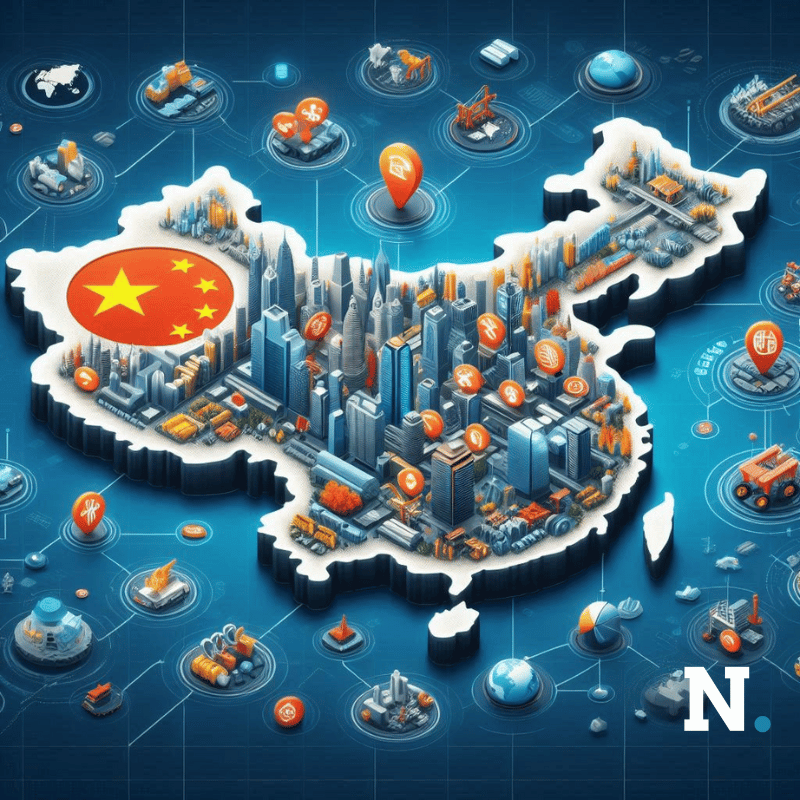Geopolitics and geoeconomics are two key concepts that shape how countries interact with each other. Geopolitics refers to how nations use political power and military strength to influence other countries. Historically, it was the primary way countries showed their power. For example, countries could establish military bases or engage in wars to gain control or influence. But recently, China has disengaged from Galvan region after four years of geopolitical tensions. One of the reasons of this withdrawal could be the geoeconomics. China is trying to build economic co-operation with India.
On the other hand, geoeconomics refers to the use of economic tools like trade, investment, and sanctions to shape global relations. While geopolitics used to be the dominant force, geoeconomics is now becoming more important, especially because of the growing influence of China. Many countries are focusing on their economic power instead of relying on military strength alone.
China’s Increased Focus on Geoeconomics
In recent years, China has become a major player in the global economy. It is one of the largest trading nations, and its economic policies have far-reaching effects on other countries. China’s rapid growth has made it an economic giant, giving it significant leverage over many nations. For example, China is a major trading partner for countries in Asia, Africa, Europe, and even the Americas. Its vast production capabilities and export strength mean that many countries rely on China for goods ranging from electronics to clothing.
Silicon Diplomacy Takes Center Stage for India
This economic dependence on China gives the country considerable influence. Nations may hesitate to criticize or confront China on political issues because they fear losing economic ties or facing economic repercussions. China has also used its wealth to invest heavily in other countries through infrastructure projects, providing loans, and making strategic business deals. This has allowed China to extend its economic reach and influence without resorting to traditional geopolitical strategies like military intervention.
How Geoeconomics is Surpassing Geopolitics ?
With China becoming more powerful economically, geoeconomics is surpassing geopolitics as the main tool for countries to assert influence globally. Instead of engaging in conflicts or military displays, China uses its economic power to gain strategic advantages. Countries that depend on China economically may be more inclined to align with China’s political goals or avoid taking actions that might upset the Chinese government.
Geopolitical Tensions Escalate with Russian, Canadian, and U.S. Ships in Cuba
Trade is one of the most effective tools in geoeconomics. By controlling access to its vast markets, China can push countries to behave in ways that favor its own interests. For example, China has restricted imports from countries it disagrees with, causing significant economic impact on those nations. These actions show how China can use its economic clout to influence global politics without direct confrontation.
Additionally, China’s Belt and Road Initiative (BRI) is a prime example of geoeconomics at play. Through the BRI, China has invested in large-scale infrastructure projects in various countries, building roads, ports, and railways. These investments help China build stronger relationships with participating nations while increasing its economic influence globally. The countries receiving investment may feel obligated to align more closely with China, thereby reducing tensions or potential geopolitical conflicts.
Greece’s Strategy Shifts Towards Natural Gas, Raising Environmental and Geopolitical Concerns
The Global Response to China’s Economic Influence
As China continues to grow economically, other countries are adapting to the changing landscape. Many nations are recognizing that economic power is becoming more important than traditional military power. This shift toward geoeconomics means that countries must focus on strengthening their economies, securing trade agreements, and diversifying their supply chains.
Countries are also exploring new alliances and partnerships to counterbalance China’s economic influence. For example, some nations have sought to create trade agreements that do not rely on China as a central partner, ensuring that they can reduce their dependence on Chinese imports and exports. By building stronger economic ties with other nations, countries aim to avoid being overly reliant on China’s economy, which could leave them vulnerable to geoeconomic pressure.
In this new world shaped by geoeconomics, the balance of power is increasingly influenced by economic factors rather than military might. China’s rise as an economic powerhouse is a major factor driving this shift, leading many countries to focus on their economic strategies to maintain their influence on the global stage.
This marks a significant change from the traditional approach to international relations, where military alliances and geopolitical maneuvering were the main tools of power.





